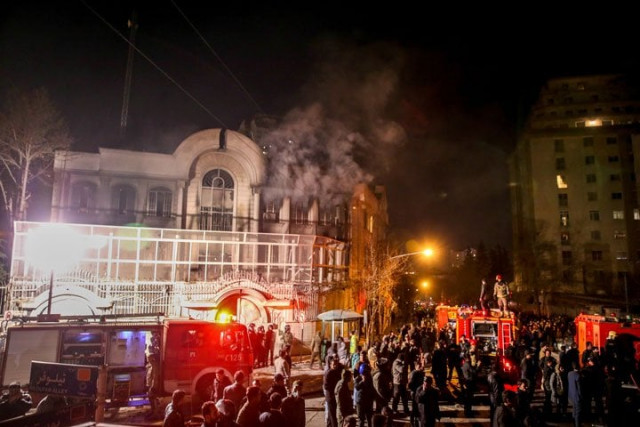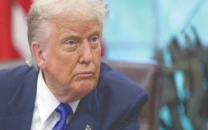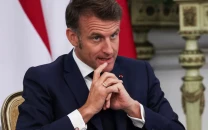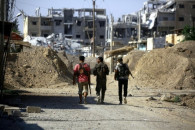Iran-Saudi Arabia conflict
Pakistan cannot get drawn into Arab-Persian conflict despite the fact that we have good relations with Saudi Arabia

Iranian protesters set fire to the Saudi Embassy in Tehran during a demonstration against the execution of prominent Shia Muslim cleric Nimr al-Nimr by Saudi authorities, on January 2, 2016. PHOTO: AFP
The recent turn of events, precipitated by the execution of Sheikh Nimr, who many observers say underwent a legal process that did not meet all standards of what should constitute a fair trial, can have serious consequences for Pakistan. We have friendly relations with both Saudi Arabia and Iran, and are closely engaged with both countries, particularly in respect of meeting our energy needs into a far future. The one area that will now need delicate handling is that of the inflaming of sectarian fault lines within Pakistan. Sectarian tensions are easily provoked here and the country has seen much sectarian strife and conflict over the past many decades. There have been demonstrations, largely peaceful, in Pakistan since the execution.
The struggle for ascendancy in the region between Arabs and Persians is two millennia old and predates Islam, and that struggle continues today with both states using proxies to fight a war in Yemen. Pakistan cannot get drawn into this conflict despite the fact that we have good relations with Saudi Arabia, which has supported us in historical times of need. We must consider that Iran is an important neighbour and we need to foster healthy ties with it as well. We have to protect our own often fragile equilibrium in sectarian terms, and cannot afford to be seen to be favouring one side or another, at the same time as maintaining equable relations with both. The consequences of this execution are already apparent, and arms-length diplomacy must be our default position.
Published in The Express Tribune, January 5th, 2016.
Like Opinion & Editorial on Facebook, follow @ETOpEd on Twitter to receive all updates on all our daily pieces.






1724148693-0/BeFunky-collage]_____-(24)1724148693-0-208x130.webp)











COMMENTS
Comments are moderated and generally will be posted if they are on-topic and not abusive.
For more information, please see our Comments FAQ